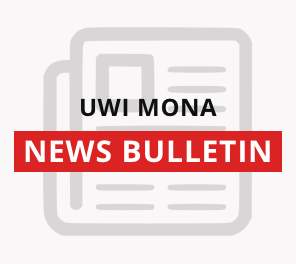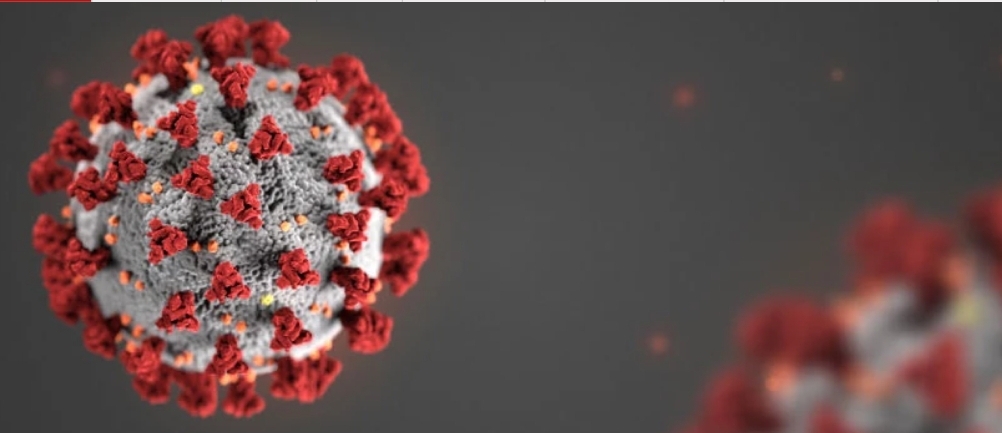

As the quest for a vaccine for the novel coronavirus (COVID-19) continues, The University of the West Indies (The UWI) is coordinating the participation of several Caribbean countries in the World Health Organization's (WHO) global mega-trial called SOLIDARITY.
The announcement was made by Senior Lecturer of the Department of Surgery Radiology, Anaesthesia and Intensive Care, The UWI Mona, Dr. Kelvin Ehikhmetalor, at a Teleconference hosted by the Faculty of Medical Sciences on April 19, 2020.
The SOLIDARITY initiative is an international clinical trial to help find an effective treatment for COVID-19, launched by the World Health Organization and partners on Friday, March 20, 2020 at a press briefing hosted at their Headquarters in Geneva.
According to the WHO Resource Centre, the Solidarity Trial will compare four treatment options against standard of care, to assess their relative effectiveness against COVID-19. By enrolling patients in multiple countries, to include Jamaica, the Solidarity Trial aims to rapidly discover whether any of the drugs slow disease progression or improve survival. Other drugs can be added based on emerging evidence.
It is proposed that the study be done throughout the countries in which The UWI has campuses with strong clinical presence - namely in Trinidad and Tobago, Barbados and the Bahamas. Already, there is a committee across the four countries that is chaired by Professor Marvin Reid of the Mona Campus.
Speaking at the teleconference on the subtopic of "therapeutics and pharmaceutical treatments", Dr. Ehikhmetalor said "the SOLIDARITY Trial is ongoing, and the University of the West Indies is positioning to be a part of this trial. We will be supplying data and so we will be using some of these drugs in our patients within that context and will be sending the results to the World Health Organization for analysis."
Dr. Ehikhmetalor said, "COVID-19, which is the disease caused by the virus, causes severe acute respiratory syndrome and presents an unprecedented challenge to identify drugs for its prevention and treatment of the condition; treatments are desperately needed."
Dr. Ehikhmetalor noted that most of the evidence we (in Jamaica) have at this time is based on clinical experience and from trials from the countries which have been through this very difficult time. He added that currently, more than 300 active clinical trials are underway, many of them propose treatment plans or experimental treatment.
He noted that in most cases, "people were working in the dark...as it is a road that has never been travelled before, as it is a novel virus." People, he said, are trying all kinds of things. Over a period of time the disease's pathogenesis is becoming a little clearer, and people are beginning to understand what to use and more importantly when to use it so that we can actually affect the outcome in patients.
While Dr. Ehikhmetalor acknowledged that there are no specific treatments for COVID-19, he believes there is light at the end of the tunnel as there are many small-scale trials underway. "There are lots of things in the armour, many undergoing large scale clinical trials, many things are showing promise."
The challenge, he said, is "about what to use and when to use it and I'm quite confident that the mega trial now being put on by the WHO, it is a pragmatic trial designed to randomize confirmed cases into either standard care, or to one of four active treatments."
The World Health Organization Clinical Management Guidelines documents as of March says there is no current evidence to recommend any specific anti-COVID-19 treatment with the disease, so the WHO recommends supportive therapy.
Characterizing the global pandemic as a war, Dr. Ehikhmetalor said 'It is by wisdom and by counsel that you wage a war, and this is war. We are confident there is light at the end of the tunnel.'
We are in this together
Dr Tomlin Paul, Dean of the Faculty of Medical Sciences at The University of the West Indies, Mona, who chaired the teleconference, emphasized that "as a University that is leading in terms of science and research, it is important for us to meet to share with our community, the public, the region and the world at large, on where we are with respect to this pandemic."
Recognizing the importance of hosting the teleconference, Dr. Paul noted that "we have a responsibility in our role to bring hope, to bring knowledge and to assist in any way possible so we can all cope during this time. Even as we distance ourselves physically, he said, it is important that we "reach out and touch someone's heart to make the world a better place."
In closing the 3-hour event, Dr. Paul stated, "we have come together as a region, as academics, and we have come together in partnership with the Ministry of Health and Wellness and by extension the public health system to make an impact on COVID-19. The fact that we will be contributing to this global mega-trial (SOLIDARITY) says that "we are in this together."

